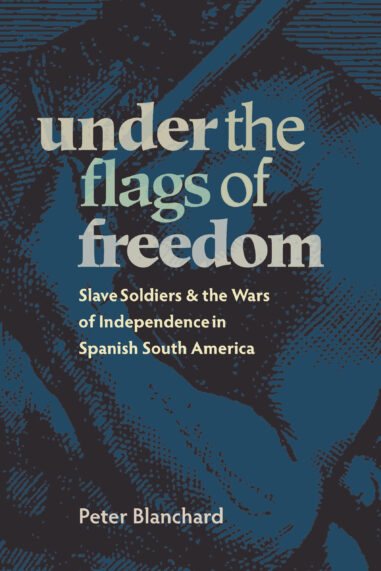
Paperback $60.00
Also available in Kindle
Request Exam or Desk Copy. Request Review Copy
Under the Flags of Freedom
Slave Soldiers and the Wars of Independence in Spanish South America
Under the Flags of Freedom is essential reading for historians of Latin American slavery and independence movements. Peter Blanchard convincingly demonstrates that the Spanish American revolutions undermined slavery in South America; at the same time, war gave enslaved persons the openings to fight for their freedom. Yet despite the new opportunities to claim freedom, the dismantling of slavery was protracted, conflictive, and uncertain. Blanchard brings to light the numerous conflicts over slavery and freedom that shaped the era's broader struggle for emancipation and independence.

